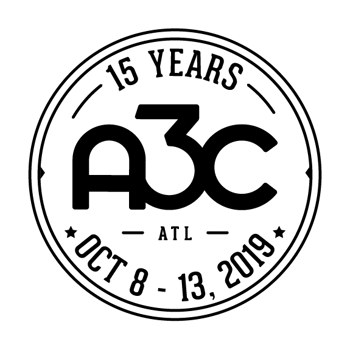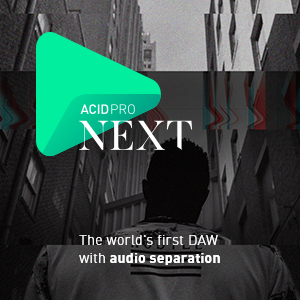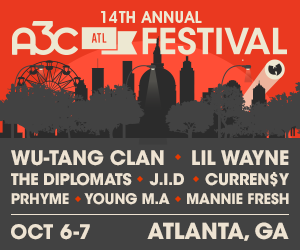Let's face it -- it's hard to make money in the music industry, especially as an indie or DIY artist. We are currently operating in a time where artists make around $0.006 per stream, and the entire culture of "buying" an album has really gone completely out of the window.
That's not saying it's impossible to make money. Live music has become "the" go-to way for artists to create an income, and you also see more artists developing lifestyle brands that ensure sales of merchandise and other "non-music" related items. (And yes, you can make some money via streams and if marketing properly, you can bring in some record sale cash, too).
However, one of the most sought-after and lucrative money makers for artists are licensing your music in film, TV, and video games. Not only is this the most profitable way for artists to make cash, it's also (in my experience) pretty widely overlooked in the indie hip hop scene. However, landing your music in a commercial, movie or even a lower budget indie film, can pay you a pretty penny, and even lead to exposure.
One example I like to use isn't a hip hop one (remember how I said it's often overlooked in our genre?), but it's still certainly one we can learn from. The band Fun. had been around for a good half a decade, and the singer Nate Ruess was pretty much a legend in the indie rock scene. However, his group Fun. was having trouble picking up and taking off. Despite being a major distributed indie group.
The band Fun. had been around for a good half a decade, and the singer Nate Ruess was pretty much a legend in the indie rock scene. However, his group Fun. was having trouble picking up and taking off. Despite being a major distributed indie group.
This all changed in 2012, when their song We Are Young was used in a Chevrolet commercial, during the Superbowl. It seemed as if overnight they were on late night TV shows, playing SNL, and all over the radio. Which they used to then leverage their future releases and success.
This seemingly overnight growth is completely possible if you have the right track in the right place. But beyond success and shining a light on your work, let's talk about money. A small advertisement, so maybe an online ad or a 30-second TV commercial can land an artist $2,000 to $10,000, where as a large brand commercial, a film or let's say a video game, can land an artist in the $20,000+ range.
Is there a "guide" to how much an artist can ask for? Not necessarily, it all depends on the budget of the project (commercial, film etc...), but it sure as hell beats $0.006 per stream.
So, let's dig into this deeper.
How Licensing Works: At a Glance.
Just as a writer would review and post your work on a blog, or a talent buyer would book you for a show -- the "gatekeeper" to music licensing is called a music supervisor. A music supervisor's sole job is to pick out music for a film, advertisement or whatever their project may be.
And similarly, just as you would pitch a writer or venue -- you would pitch a music supervisor your music. You'd neatly prepare it (which we'll discuss shortly) and pitch it to them for any projects they may be working on.
Other decision makers could be the sound editor, who has the job of actually putting the music into the film or scenes. So, let's say a scene has been filmed and editor is adding in some music -- but it just doesn't feel right. It might not have the right tempo, or it might be too long or short. To meet deadlines, the editor can't go back to the supervisor, and they need to make a decision ASAP. Therefore, they may pull a song from a hot indie artist that emailed them!
This happens often! I've personally worked on projects where the music supervisor passed, but the sound editor held onto our tracks -- only to end up using them when they were in a crunch, and realize their original plan fell through.
Another large gatekeeper is the creative director. Advertising and brands pay big bucks for music in their film! Quite often, the track in the ad makes the ad -- this is especially true for car brands, sports drinks and other "lifestyle" brands.
Even large advertising agencies usually don't have a full-time music supervisor, so it's generally the creative director who's overseeing the project to pick out the proper music. This comes in handy as you begin pitching people your work.
How to Prep & Maximize Your Work.
First, what songs are "licensable" in your catalog? Hint: The songs with blatant profanity in the chorus or drug references might not be the best fit. (However, their instrumentals might be!)
Find a few songs that you can envision in a movie or commercial, and allow those to be the ones you pitch. And as I mentioned before, if you own the instrumentals, those can be great for film. A lot of entities look for music without lyrics, and some artist even record work with no lyrics purely for licensing pitching.
Once you've identified your tracks, you're going to want to ensure that it's metadata is up-to-par. That means all of the information about genre, date and managers are also set-up. This is crucial, as it saves the music supervisor work.
It's all about saving the music supervisor's time.
Any project is running on a timeline-- a movie, a commercial, a videogame, it all has a deadline they need to meet. Nine times out of ten, the music supervisor wants a particular track but it's usually too expensive, so they go with an indie artist (which is good for you!). More importantly, the track they really want might takes months to clear through record labels, publishers and co-writers. This is especially true for major artists.
Therefore, if you're an indie artist who owns your publishing and copyrights you can literally get your work cleared and signed off on, within a day or two. This immediately puts you at the top of the list, because they can move faster if going with your work.
So for instance, if they want a Future track for their movie trailer, but don't want to take the time to clear the sample through Epic Records, BMI publishing, Future's producer, co-writers and then negotiate a price with the publisher and label..
They may go with a nice indie artist who has that same Future hyped up sound, while owning the masters so you don't have to take 3-4 months to get it cleared. Lastly, as an indie artist, you won't need to charge the insane amount that Future, Epic and BMI would ask for.
Along with perfecting your meta-data and owning your publishing, also ensure that the songs your pitching are organized appropriately. One thing I recommend artist do is send over a microsite just for music supervisors. In this site, there is a streaming embed, so the supervisors can preview, but also a place where they can quickly download the Mp3, if they decide to make a last minute choice, or want to preview how it would sound in a scene.
How to Actually Get Placed.
Option One: A Music Library.
There are actually companies that do the work for you -- you simply upload your music to their website, and they pitch supervisors on your behalf. The "chase" here, is that they take a cut of any profit you make. It's typically a smaller profit -- 10-15%, but it's still something to keep in mind.
While I consider this to be a last resort, it's still a viable option. Especially if you have a large catalog that you don't have time to continually pitch. Some good libraries include Music Bed, Jingle Punks, Audiosocket and more.
Option Two: Make a list, Write a pitch.
Just as you would for a new release, or booking a tour -- you're going to want to build a media list, and pitch folks directly. Your pitch should be incredibly to the point:
Hey Sue,
Just wanted to introduce you to my latest track, Waves. It has that laid back vibe that might be perfect for one of your summer-based TV series. I'm including a microsite link below that has preview links, as well as download links for your use.
Would love to know your thoughts.
Thanks in advance.
And with any project, follow up every few weeks -- before eventually, slowly backing off and taking the hint, if necessary.
How to Meet Music Supervisors.
Sure, you have your pitch down and your music ready -- and you don't want to give up 15% to a library just yet. So, how do you go about finding these supervisors?
The easiest answer is simply... networking. I actually met an amazing supervisor throughNARIP, which is the National Association for Recording Industry Professionals. They regularly put on supervisor showcases where members can link up with supervisors and pitch their work.
This isn't just set to professional groups either. You'll find other networking events or conferences that will bring you face-to-face with film and advertising decision makers. SXSW holds such events, and you might even find a supervisor pitch session at this year's A3C, as we're still sifting through the panel applications!
Keep your eyes peeled for these events, but also for any "industry mixer" events. You might meet a manager or artist that knows a supervisor, or other person looking for new work to place in their project.
Two years ago, during SXSW in Austin -- I was just making small-talk with the bouncer for a showcase, as a group I was working with was unloading their equipment. He really liked the group's sound, and as I asked more about what he does and if he's from the area, etc... He dropped a bombshell on me.
He was a producer for MTV, and just comes to Austin every year to help with this particular showcase
He actually loved the group's work, and over the next few weeks, he introduced me to various sound editors, supervisors, and even hooked my artist mangers with the supervision team over at MTV.
You'll never know who you'll meet!
Another tried and true method -- research.
Go to IMDB and see who handles supervision for your favorite shows, or look up ad agencies that might work with your favorite brands. Once you have their names, go to Zoom Info or Lead Ferret and see if you can snag their email. If so, put it in a list, and pitch them accordingly.
This is really just the opening to a world of possibility. Getting your music placed in film can be a huge pay-day, but also a great way to look professional, learn how to network, and simply expand your brand.
Best of luck!



